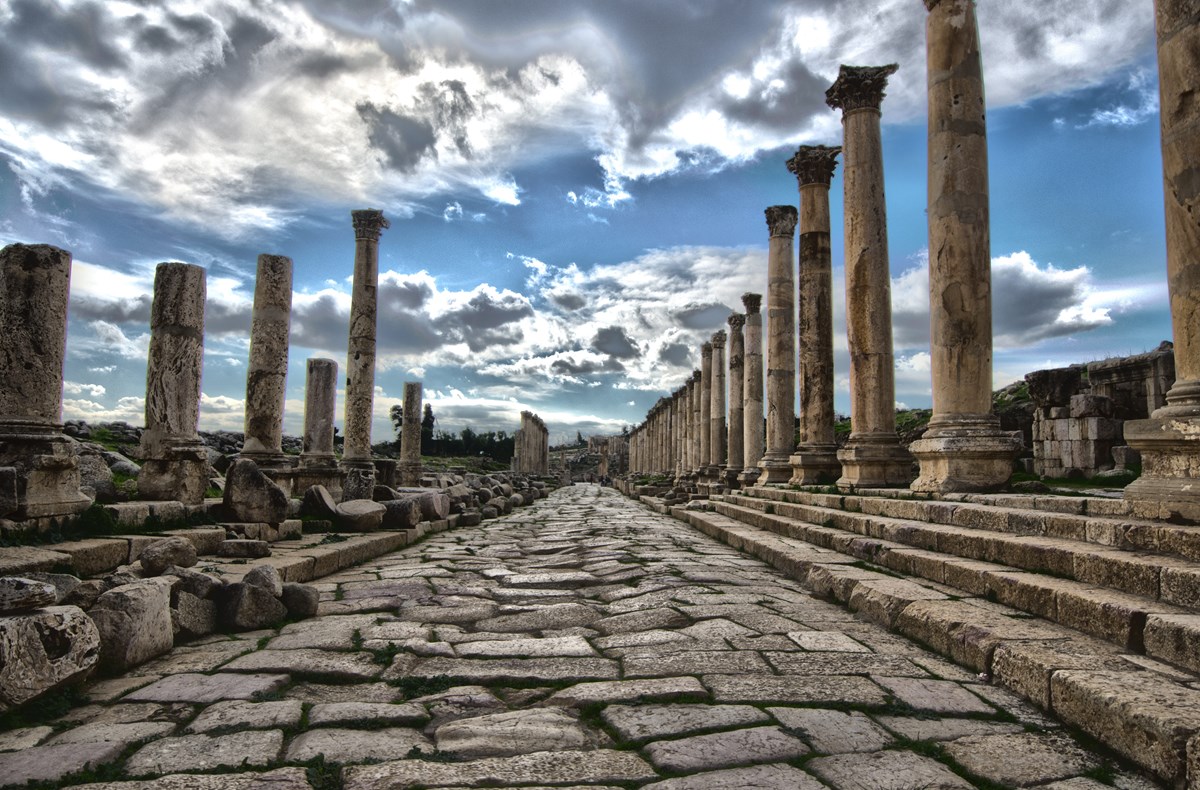Like the ancient Greeks, the ancient Romans failed to leave any systematic body of thoughts on economics. Indeed, many of their economic ideas were borrowed from the Greeks. The Romans were mostly concerned with “practical” matters, and have often been characterized as “doers” rather than philosophers.
Where they did leave a body of thought was in the area of law and contract. Roman legal scholarship had lasting influence and significance for future generations, especially in the West up until our own time. Their main contribution was the legal order upon which Western economic traditions of property and exchange were largely founded.
Respecting the Local Laws of Diverse Peoples
As the Roman Empire expanded, it incorporated a growing number of peoples and cultures very different from Rome’s own. Indeed, at its maximum, the Roman Empire included much of Western, Central, and Southern Europe, nearly all of the Middle East, and portions of northern Africa, including Egypt down the Nile River. It became important to develop conceptions and codes of law that were broad and general enough to encompass the diversity of the empire, yet had a degree of uniformity for all its subjects.
This was a code of law that reflected the evolved traditions and customs of Rome itself.
Roman jurists and philosophers came to distinguish between the rules and laws for the citizens of Rome and the more general legal code for the empire as a whole.
The Roman citizen – the citizen of the imperial capital city of Rome – was under the jurisdiction of jus civile, the “civil law.”
This was a code of law that reflected the evolved traditions and customs of Rome itself, concerning the rights, privileges, and duties of a Roman citizen before the law and before his fellow city-members. Indeed, each part of the empire was recognized to have its own jus civile, or civil law, which the inhabitants of that province or region were obligated to obey, which safeguarded their rights in legal disputes in the respective localities, and which Roman authorities had to respect.
A Universal Law Reflecting Justice for All Men
The Romans distinguished between human law and a “higher” law of right and justice.
In contrast to “civil law” was jus gentium, the general or “universal” law. This code was meant to apply to all members of the empire, irrespective of local custom or law. Since “universal law” was to transcend the particular traditions of the diverse peoples of the empire, it had to be based on concepts of justice and “rights” broader than any one set of customs, even Rome’s.
Out of the development of the “universal law” code emerged the idea of jus naturale, or the “natural law.”
The Romans distinguished between human law and a “higher” law of right and justice that reason could demonstrate to be right and proper among all men, regardless of to which individual or group it applied, and to which all reasonable men of good will could and would agree and accede.
For 2,000 years it has served as a basis upon which men have claimed to have certain inalienable rights that no government could tamper with or transgress without violating a code of conduct among men that no temporal authority has the power or right to abrogate.
As with all governments and empires, reality of such things often differs from the ideal. The Romans could be harsh imperial masters, little patient or tolerant of any serious rebellion or dissent. And they, like the ancient Greeks, were wedded to the institution of slavery, which meant those for whom such notions as “rights” fully applied were minorities. Nonetheless, one of the important political-philosophical seeds was planted that had its influence on later development in the West.
Law, Property, and Commercial Prosperity
From the Roman conception of “universal law” developed an extremely comprehensive body of contract and property law that, unlike the Greek tradition, established a wide latitude and autonomy for the free individual in his use and disposal of his person and property.
The result was a more or less free movement of goods, raw materials, and people.
As a result, Roman law over a wide area of transactions came to respect market-determined prices as “just prices,” in that they represented the mutually agreed upon terms of trade. It also served as the basis of what became a vast network of empire-wide production, of trade and commerce among all of the far-flung provinces and regions of the Roman Empire.
It fostered a system of division of labor and market-based exchange that made the entire Mediterranean basin, a large part of Western and Central Europe, most of the Middle East, and parts of North Africa one vast economic unit. Given the means of transportation available by land and sea (and it should be remembered that parts of the road system built across Europe by the ancient Romans still exists), the result was a more or less free movement of goods, raw materials, and people from the Atlantic Ocean to the Persian Gulf, and from the Baltic Sea to the head waters of the Nile.
Of course, the Romans practiced neither real free trade nor laissez-faire. Always the trade in a variety of commodities was overlaid with imperial regulations and controls.
As the Austrian economist, Ludwig von Mises observed in his treatise on Human Action:
“It may be left undecided whether or not it is correct to call the economic organization of the Roman Empire capitalism. At any rate it is certain that the Roman Empire is the second century, age of the Antonines, the ‘good’ emperors, had reached a high stage of the social system of division of labor and interregional commerce. Several metropolitan centers, a considerable number of middle-sized towns, and many small towns were the seats of a refined civilization.
“The inhabitants of these urban agglomerates were supplied with food and raw materials not only from the neighboring rural districts, but also from distant provinces. A part of these provisions flowed into the cities as revenue of the wealthy residents who owned landed property. But a considerable part was bought in exchange for the rural population’s purchases of the products of the city-dwellers’ processing activities.
“There was an extensive trade between the various regions of the vast empire. Not only in the processing industries, but also in agriculture there was a tendency toward more specialization. The various parts of the empire were no longer economically self-sufficient. They were interdependent.”

